Jamal Drammeh
For a simple mind, there are no practical difficulties in discerning what is right from wrong. We import the difficulties by our prejudices. These foolish imports interferes with the optimism of nature, thwarts our natural magnetism, and creates intellectual obstructions that has no place in us.
In every constitution, there always remains to be residuals it could not resolve. The most inundated legal minds cannot craft laws or constitution that would be immune to exploitation in some way by the very law makers that are supposed to uphold them. If writing new laws and constitutional reforms should be the solution to our every problem, then we will keep doing it forever. What is the point of perpetually amending laws, if the law makers are bent on betraying the spirit and intent of the laws? Spirit or intent cannot be wholly legislated so will forever remain elusive to our written laws, but the law of consciousness abide.
So let us draw some lessons from nature. Water only rises to the level of its source. The source of government being the society — can only be elevated to moral heights of the society. It is the qualities of the society that is magnified in government. We the people; are the essential measure of right, of truth, of love, of beauty….. And yes, of our laws and constitutions!
We are wiser than we project in our discourse, and we know each other very well! Truth and reality never escapes our apperception. No amount of written laws and constitutional stipulations can change reality. We should become thinking people; not clinging to the idle notes of the Jeffersons and Madisons, or our contemporary legislators — as if their uttered syllables or texts are divine doctrines that God Himself brought to humanity.
Let us stop this domestication of the foreign and the worship of the old — and bring forth the vitality of the best in our culture and virtue, now. We also live with God, right now; and can look inward and produce works and write laws just as great in this twilight of our democracy to rekindle the spirit of our common dreams and aspirations.
The best constitution — used at a negative degree will still oppress the masses. We must not be the fanatical guards of the laws and constitution, but rather be guides for them; the redeemers. The lawyers are trained to defend the text — unless it suits a client to distort them. So let the lawyers and politicians cling to their trifles; twist their lips even to indignation to redefine every letter of the alphabet.
A simple mind is royal; royalty makes habitual its own estimates of laws and affairs of men. We the people, must make habitual our own estimate of what is right and just, then demand it!
Laws of the land must be respected. But the slavish overestimate of the laws and constitution will always make us vulnerable to be oppressed or be victimized. So we should also avail ourselves the option for direct action in the course of justice and liberty through civil disobedience. Justice, we can perceive, and not in the whimsical but in eternal sense. We also know truth like we are aware that we are alive.
Civil disobedience: If history taught us any profound lessons about changing a government or system; is the irresistible power and the influence of civil disobedience. From every generation, the message of this solemn thunder is duly renewed and passed down to the next.
The reverberations of this immensity, has always transcended time and space with unfathomable results. From Hendry David Thoreau, to Leo Tolstoy, to Mahatma Ghandi, to Martin Luther and so many others before, after and in between — we’ve seen its doctrine preached and demonstrated to accomplish the “impossible”.
This cathartic virtue has done more in shaping history than any laws man has ever made. It will serve the course of the nation much nobler than any laws or constitution if the government loses its moral compass.
Democracy has too many slippery slopes; it is treacherous like the skating ring. And “when skiing on thin ice, your safety is in the speed.” So no; don’t appeal for silence and patience of the dissenters — but you can ask for decorous in their rage. We must be responsive and act quickly to counteract the excesses of any government. Patience and silence are no remedies for the expediency of government.
People have to rise up, demand and personify the change they want to see. Transparent persons are rare in politics; so it is futile to wait for politicians to act in ways that would curb their own power or change the power dynamics that’s disadvantageous to themselves. But no government is strong enough to resist a sustained pressure or popular uprising for a just course if enough people demand it. Sustained pressure always works in politics; civil disobedience — the most effective tool.
Separation of powers: For society to save herself from her own misgivings — creates the government. Government in its own turn to save itself from its own misgivings — divides itself into three branches, in a democracy. The aim is to put checks and balances on one another, and to prevent any one of the branches from usurping its authority. Success in more manure democracies, depends largely on this self-regulating and self-correcting mechanism of the separation of powers. In new democracies, these are formalities, mainly.
Nevertheless, the public holds the informal but solemn oversight authority over these three branches of governments. Government and its institutions should be rightly supported for doing its job, but a slavish respect for government that seeks to place it beyond reproach is the recipe for the destruction of a democracy.
Like man, government offers itself to be judged — though involuntarily. We need only watch and let it unfold itself and reveal its follies — if it has any. In politics and government; every day is a Judgment Day, so we must judge and act upon it responsibly but with promptitude.
We don’t need to be perplexed by the textual protestations of the laws or constitutional super navigation of the politicians or by the legal experts. Let us do and say simply what appeals to our nature and it’s morally right or just.
No citizen is too wise or too foolish to not participate in a constructive discourse of a nation. To remain silent while you watch a nation charter a dangerous territory or head for failure — is no mark of wisdom. Oracles speak! What you have done…. Will define you. Not what you gained, but what you’ve done for your fellows in truth — is your true worth.
Good as laws can be; conscience is better. Nothing can maintain peace and bring prosperity but ourselves. Only through the triumph of principle and the citizenry holding government accountable can we ensure the liberty and the dignity of every member of the society. The masses remain to be the ultimate ‘exchequer’ of our ‘practical’ laws and constitution. That is my central argument.
My last appeal to you, my reader; is to not settle any claims by my protestations, or put disproportionate value to these opinions. I’m only an experimenter, communicating my observations and hypothesis. Using an imperfect instrument called language — to describe a profound combinations of nuances of “The machine called government vs. people and their conscience”.
Simply think — is my appeal.





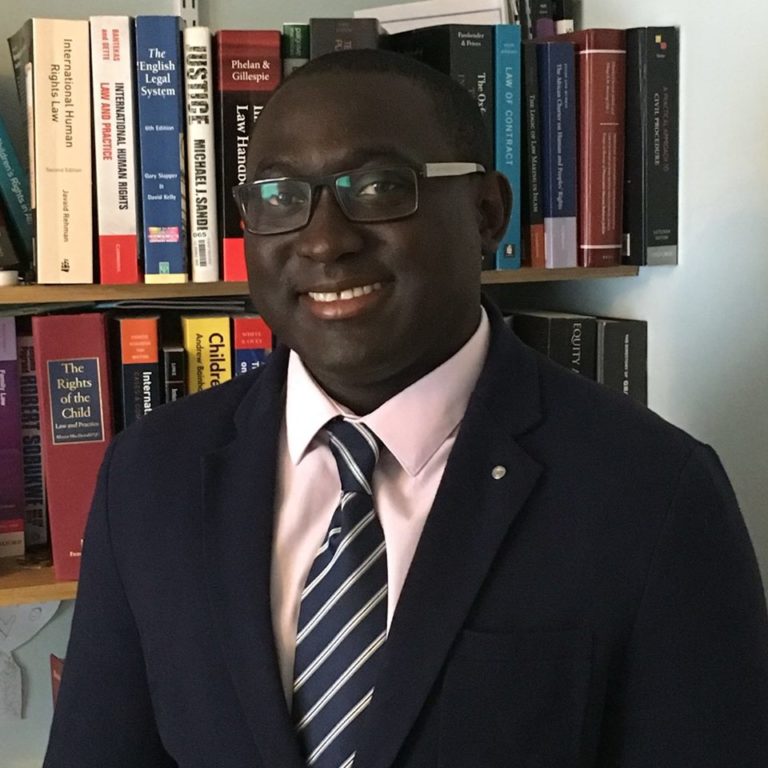

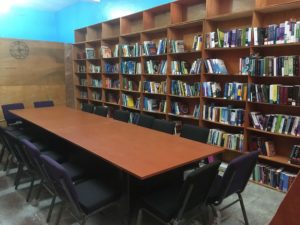
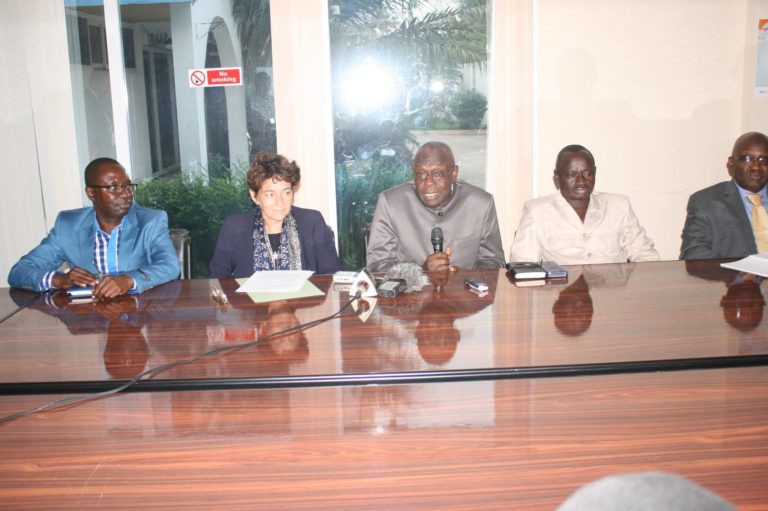


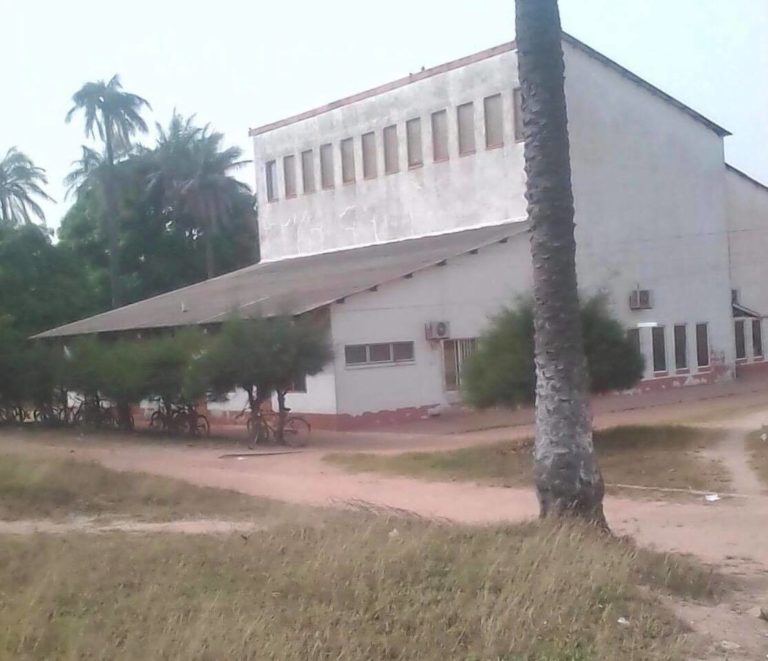



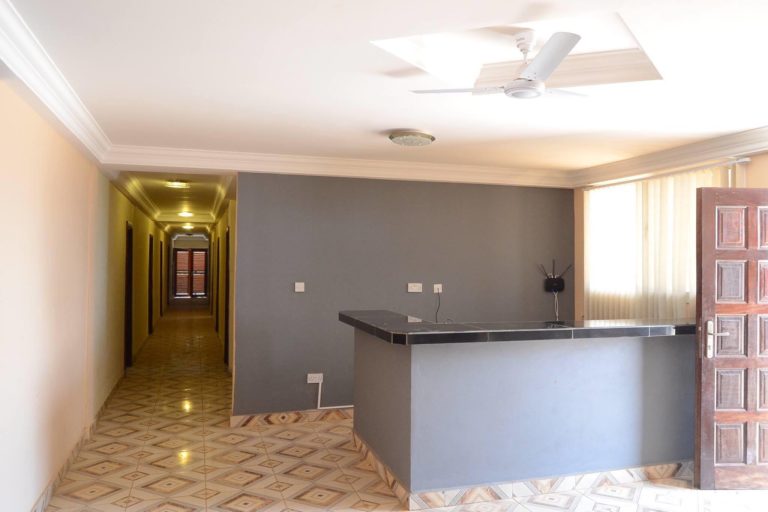
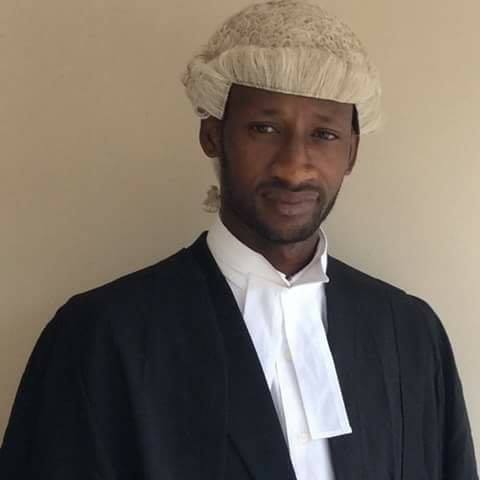



Lawyer Salieu Taal’s Statement
At the 49th Janneh Commission Hearing of 15th of November, 2017, Mr. Amadou Samba mentioned my name, Salieu Taal, as one of the Solicitors used by the former President in property transactions.
For the record and for the purpose of clarity, in the course of my career spanning from 2001 to date, I have never been engaged or retained by the former President in my legal capacity or any capacity whatsoever.
As a transaction lawyer, I was engaged by Mr. Amadou Samba between 2011 – 2012 or thereabouts on four occasions to prepare deeds of assignments in respect of properties sold by private individuals/families to Kanilai Family Farms Ltd.
I have never advised or counseled the former president in any matter, business or transaction and I have never had an audience with him.
As citizens, some friends and I initiated #GambiaHasDecided during the political impasse, in defiance of the former President’s attempt to hijack our votes after we as Gambians voted for change.
GambiaHasDecided has since become a globally acclaimed initiative that rallied all Gambians from all walks of life and political divide thus playing a pivotal role in restoring our democracy.
GambiaHasDecided is beyond my humble person. It is a way of thinking and life for everyone putting the Gambian citizen and his/her rights, rule of law, transparency and good governance at the core in order to build together a better country for ourselves and generations to come.
For the Gambia our Homeland.
Signed
Lawyer Salieu Taal
18 November 2017
Banjul, The Gambia